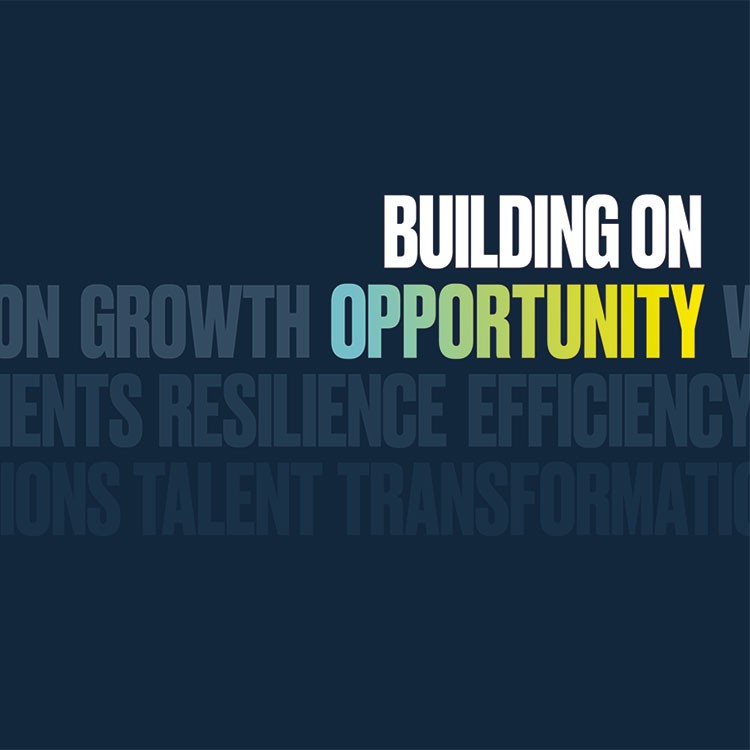Pension Trustees and the ESG Landscape

Pension Trustees and the ESG Landscape
October 2019
From October 2019, trustees of UK occupational pension schemes with more than 100 members must now set out a policy detailing how they take account of financially-material factors, including environmental, social and governance (ESG) considerations, in their investment decision making.
In line with the revised Shareholder Rights Directive, trustees are also required by October 2020 to detail their ESG-related arrangements with asset managers, including incentivisation and monitoring.
At the BNY Mellon Pension Summit, Dean Handley, Relationship Manager for UK Pensions at BNY Mellon and David Weeks, Co-Chair of the Association of Member Nominated Trustees (AMNT), sat down to discuss market reaction to these developments and the broader move toward ESG integration in the UK pension community.
Dean Handley (DH): Could you explain how attitudes towards ESG have changed amongst trustees in recent years? Have these been reflected in preparations for the recent October requirements?
David Weeks, AMNT (DW): ESG adoption has rapidly gone through a number of phases. Looking back five years ago, ESG enthusiasts among trustees could have been described as ‘prophets in the wilderness’. Then development came with pension schemes becoming more enthusiastic for a number of reasons. Regulatory drivers coupled with a growing interest in sustainability by scheme members became prevalent as the broader social narrative began to focus on sustainability and climate change. With that, a next phase came. Market operators began to recognise the opportunities presented by ESG and in response, including it in their offerings, which has had a knock on impact.
Attitudes are now becoming increasingly sophisticated. AMNT members tend to be in favour of the new regulations and welcome the swell of opinion towards the consideration of ESG factors. Hearts and minds have to a large extent been won. The focus and the challenge is now on how ESG factors can be measured – related developments will shape how the next phase pans out.
DH: Why is measurement so important?
DW: Determining the correct metrics is essential if we are to avoid ‘greenwashing'. A challenge for trustees has been the lack of transparency that certain ‘green’ labelled products offer. At the moment, there are numerous standards. This is to be expected given the evolving landscape but the market needs to coalesce around clear standards as soon as possible to further support what is considered to be the most effective analysis. Analytics will ensure ESG has credibility.
DH: Sustainability has become a proportionate concern for society generally but why are ESG issues important for trustees?
DW: Leaving aside the ethics of ESG and the imperative to address climate change, for example, ESG considerations are a valuable addition to investment decision making. Companies that consider ESG factors tend to be better managed because ESG requires transparency; well-run companies are likely to perform better for pension savers. Events such as the BP oil spill in the Gulf of Mexico or the VW emissions scandal demonstrate that ESG issues are financially material. And from a governance perspective, questionable board practices are not beneficial for shareholders. Trustees have spent a considerable amount of time educating themselves on these factors. A requirement of the recent regulatory changes is for this work to be reflected in their Statement of Investment Principles (SIPs).
DH: In October 2020, additional regulatory requirements will mean further SIP updates to incorporate information about how trustees’ manage arrangements with asset managers. What considerations should trustees be taking into account?
DW: While trustees should certainly seek advice and consult widely in relation to ESG issues, ultimately the responsibility lies with them. When considering how they go about updating their SIPs with information on how they incentivise engagement with asset managers, trustees might view alignment with their strategy as the manager’s responsibility. Our members don’t maintain this, but it’s worth noting the risks associated with such a view. Trustees must make decisions and be able to show they have made them on the basis of solid evidence.
DH: What developments can we expect to see in future with regards to ESG? Can we expect to see further ESG-related requirements for trustees?
DW: The debate around ESG is likely to continue to evolve. For instance, there’s recently been talk of the importance of social impact investing – often considered a close cousin of ESG integration – and whether specific targets should be set. Certainly, it would be valuable for society if financial mechanisms could bring together pension capital and social needs. More generally, the increasing globalisation of investment could result in a standardisation of views about ESG. For example, currently governance is the most important element of ESG in Asia while the environmental aspects are paramount in Europe. Over time this may change.
ESG is becoming an increasingly important consideration for all financial market participants. With this secular shift there is optimism, whilst implementation challenges remain. Whatever the next phase of development, trustees will need to remain vigilant on future developments.
For further information visit https://amnt.org



